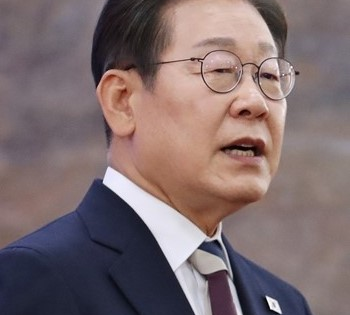South Korea, US begin to forge rapport ahead of tough alliance tasks
By IANS | Updated: June 7, 2025 07:28 IST2025-06-07T07:22:04+5:302025-06-07T07:28:18+5:30
Washington, June 7 New South Korean President Lee Jae-myung and US President Donald Trump kicked off an effort ...

South Korea, US begin to forge rapport ahead of tough alliance tasks
Washington, June 7 New South Korean President Lee Jae-myung and US President Donald Trump kicked off an effort to build rapport through a phone call, as the bilateral relationship faces an array of tricky issues, including trade negotiations, security burden-sharing, and coordination on North Korea and China.
Lee held his first phone conversation with Trump on Friday since taking office on Wednesday following this week's election that was set up due to the April ouster of former President Yoon Suk Yeol after his short-lived martial law imposition in December, Yonhap news agency reported.
During the talks, Trump congratulated Lee on his election, while Lee pointed out the importance of the South Korea-US alliance, according to Lee's office, which cast the call as "friendly." The two sides converged on the need to work closely together for the development of the alliance.
Signs of a budding friendship were detected when the two leaders discussed their experiences with assassination threats on the campaign trail and their shared interest in golf, as Lee appeared to be trying to find common themes that could further bind the allies closely together.
The call came amid expectations that the two leaders might have an opportunity to meet in person on the margins of the Group of Seven summit set to take place in Canada from June 15-17 or the North Atlantic Treaty Organization summit slated to be held in The Hague, the Netherlands, from June 24-25.
Lee's avowed position to prioritise the South Korea-US alliance as the "foundation" of his "pragmatic" foreign policy has raised cautious optimism for the future trajectory of bilateral ties, but his willingness to "stably" manage ties with China appears to have been keenly watched by the Trump administration.
Shortly after Lee's election, a White House official expressed concerns over "Chinese interference and influence" in democracies around the world -- a remark that observers said suggested the Trump administration's desire to see the Lee administration keep a distance from Beijing.
Lee's inauguration came amid rising tensions between the two superpowers over trade, technological leadership and security, to name a few.
Finding an optimal policy approach toward China that does not strain ties with the US would be a tough challenge for Lee, when the Trump administration wants its Indo-Pacific allies and partners to coalesce around its efforts to deter Chinese aggression.
For Lee, the most pressing task at hand is to reach a wide-ranging deal with Washington over US tariffs, non-tariff barriers, and economic and industrial cooperation before July 8, when Trump's 90-day suspension of "reciprocal" tariffs ends.
Lee and Trump agreed to make efforts to ensure that the two sides will swiftly reach a deal that can be "satisfactory to both sides," according to Lee's office. "Toward that end, (the presidents) agreed to work to encourage a tangible outcome from working-level negotiations," it said.
In April, the Trump administration announced 25 per cent reciprocal tariffs on South Korea, putting the Asian ally on the list of the "worst offenders." Reciprocal tariffs took effect on April 9, but Trump placed the three-month pause shortly afterward to allow for negotiations.
Korea under Lee's leadership is now charged with avoiding or minimising the impact of not only the reciprocal tariffs but also various sectoral tariffs, including 50 per cent levies on imported steel and aluminum.
Trump's drive for an increase in allies' defence spending is also expected to figure prominently in the Lee administration's engagement with Washington.
Trump has said that South Korea has not sufficiently "reimbursed" America for its "big-time" protection of the Asian ally, a narrative that reinforced speculation that he might call for a rise in Seoul's share of the cost for stationing the US Forces Korea (USFK).
Another brewing issue for the allies is the possibility of a USFK troop drawdown, a topic that resurfaced following a recent Wall Street Journal report that the Pentagon is considering withdrawing about 4,500 troops of the 28,500-strong USFK, and moving them to Guam and other locations.
Chief Pentagon spokesperson Sean Parnell has dismissed the report as "not true," but a senior US official pointed out the need last week to "calibrate" US force posture on the Korean Peninsula to deter China, leaving open the possibility of an adjustment to the USFK troop level.
Another key task for the alliance is policy coordination over North Korea diplomacy at a time when Pyongyang appears to have little appetite for engagement with either Washington or Seoul amid its deepening alignment with Moscow.
Trump has repeatedly expressed his openness to resuming dialogue with North Korean leader Kim Jong-un, while Lee has voiced hope for renewed cross-border engagement, tension reduction and trust-building with Pyongyang.
Disclaimer: This post has been auto-published from an agency feed without any modifications to the text and has not been reviewed by an editor
Open in app